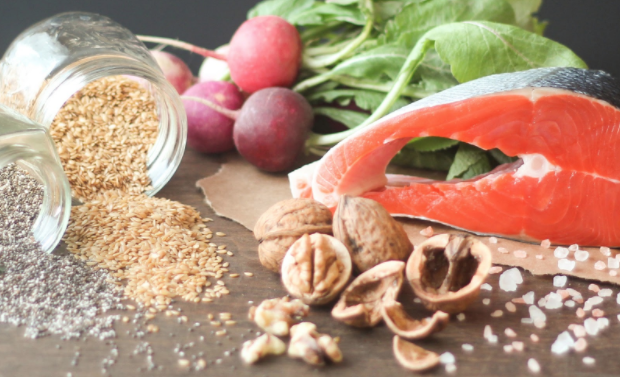No food or diet can serve as a cure for Parkinson’s disease. But eating certain foods can help minimize symptoms and help you get the most out of your medication.
Parkinson’s is caused by a decreased production of dopamine. Low levels of dopamine lead to diminished motor skills, balance problems, fatigue and other symptoms. The food and nutrients you put into your body can play a critical role in producing dopamine. So while eating the right food certainly cannot offset the effects of Parkinson’s disease entirely, a recommended diet can support your body’s ability to produce dopamine and combat symptoms of the disease.
The Best Foods for Parkinson’s
People suffering from Parkinson’s disease should try to maintain a diet heavy in the following foods:
Water
One symptom of Parkinson’s is constipation. Drinking water throughout the day can help with that.
Prunes and berries
Prunes and berries, which are rich with antioxidants, fiber, vitamin A and potassium, are also good for staving off constipation.
Fish
Salmon, trout, tuna and sardines contain high levels of protein and omega-3 fatty acids, which can help to counter the neuro-inflammation brought on by Parkinson’s. Depression and fatigue have also been linked to Parkinson’s and omega-3 fats can provide a mental and emotional boost.
Broccoli
Antioxidants, fiber, vitamin C, calcium, iron and magnesium are all found in broccoli. Magnesium acts as a natural relaxant and can fight certain Parkinson’s symptoms such as muscle tremors, spasms, insomnia, high blood pressure, irregular heartbeat and hyperactivity.
Chocolate
Sufferers of Parkinson’s have a good excuse to indulge in chocolate. The flavonoids and antioxidants can reduce the risk of strokes and cardiovascular disease and cocoa can increase serotonin in the brain, which helps regulate mood.
Ginger
Parkinson’s doesn’t necessarily cause nausea, but the medication used to treat it often does. Ginger has been used for centuries to help with nausea.
Pistachios
The vitamin K in pistachios has potential for reestablishing lost connections between neurons and the lithium in them can improve mood.
Macadamia nuts
The oils in macadamia nuts can increase the production of neurotransmitters.
Cashews
Cashews give a boost to serotonin, which can improve your mood and might even reduce memory loss.
Yellow mustard
People with Parkinson’s may experience muscle cramping at night. Yellow mustard, tonic water, salt, vinegar and pickle juice can alleviate cramping.




